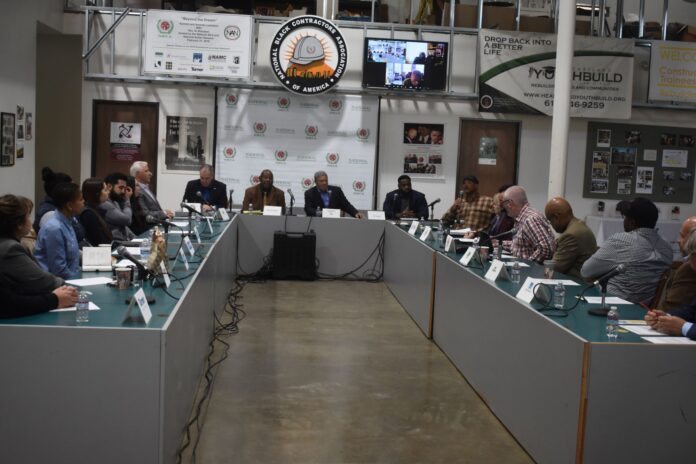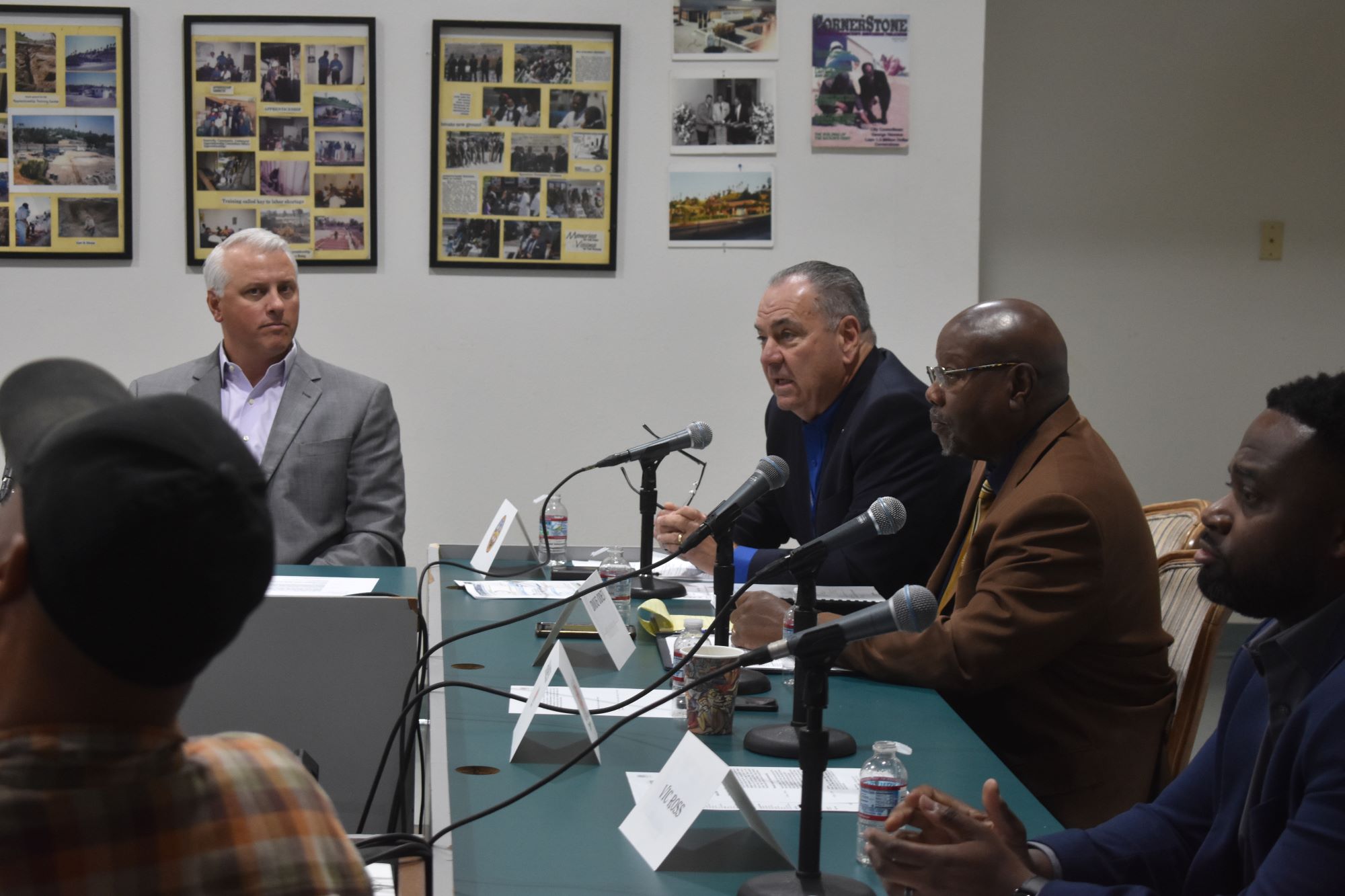
By Macy Meinhardt, Voice & Viewpoint Staff Writer
Framed around the principles of Dr. Martin Luther King, the Black Contractors Association held their first annual “Justice, Equity, and Inclusion” summit last Tuesday. The roundtable discussion focused on equality in construction and the exclusionary impact project labor agreements will continue to bring to BIPOC construction workers if voted on by San Diego City Council.
In honor of the late civil rights leader’s birthday, this past month several organizations have hosted events tying their cause to Dr. King, including the Black Contractors Association (BCA).
Founded in 1982, the BCA of San Diego is a community-based building trade association organized to promote equal opportunity for Blacks in construction. Notably, the organization also hosts the only African American State and Federal certified Apprenticeship program in America, allowing inner city youth in San Diego to learn trade skills and build a career in the construction industry.
Believing in the mission and need of a program like this in Southeast San Diego, the late Councilman George L. Steves granted $1.5 million from the city to build a training headquarter facility to train non-union youth apprentices.
However, one of the main arguments discussed at the summit consisted of the exclusion of nonunion BCA apprentices from city project labor agreements, in favor of labor unions.
A project labor agreement (PLA) sets wages and provisions for contractors on city projects, in return for a “reliable” and “skilled” workforce that meet standards for worker health and safety. This also includes provisions that mandate exclusive hiring through union halls.
“If there is a policy and procedure that says we shouldn’t [work on city jobs] then that plays into what Dr. King says, ‘injustice anywhere is a threat to justice everywhere’.” said in an introductory statement during the summit.
Yet, in a recent State of the City Address Mayor Todd Gloria announced that he would be proposing a policy for a city wide project labor agreement with the San Diego County Building and Construction Trades Council, a group representing unionized construction workers. The agreement will apply to all city projects and is slated to be voted upon by the City Council in the near future.
Despite being certified to perform these jobs, in trying to make public works projects union only, this bars BCA apprentices from the opportunity to compete for city and county wide jobs, such as building libraries, and roadways.
“It seems to me that if the state has given you the right to have a program, then that is against public policy for a city or any other municipality to have a labor project agreement that excludes non-union apprenticeship programs,” said Doug Oden, a legal consultant for BCA.
Key figures involved in last Tuesday’s conversation included: Director of Purchasing and Contracting, Jack Pellegrino; Manager of DEI at Port of San Diego, Shirley Parsons; as well as Director of Equity and Racial Justice, Andrew Strong. In addition, stakeholders from affordable housing developers, small business contractors, and building trade association leaders had a seat at the table.

Pellegrino, who has served in purchasing and contracting for 12 years, spoke on the efforts the county department has put forward in embodying equitable inclusion within their business models. One of these efforts includes ensuring that the BIPOC community did not get left out of a $60 million major construction project happening within their own community, the Southeastern Live Well Center.
How this was managed was by placing a requirement to the general contractor to provide a strong community inclusion and engagement plan to ensure facilities built for the community are built by the community; an approach BCA members suggest the city shall follow suit on.
Shirley Parsons with the Port of San Diego also chimed in on efforts her department is taking to reach inclusive outreach goals, such as meeting with contractors and individuals to learn and identify systemic barriers, hosting “How to do Business with the Port” workshops as well as job fairs for big projects in the area that they will be developed in.
To round out the event, San Diego County’s Director of Equity and Racial Justice Office, Andrew Strong, presented the audience with a keynote address. In his speech Strong spoke on the mission behind his office, and the continued fight against exclusion and systemic racism—which serves as the heart of BCA’s concerns with project labor agreements.
“And that’s exactly what we’re talking about. Here. Right? You’re talking about structural systemic racism in the contracting process, when we’re talking about exclusion in the contracting process that’s happened for years, or for a multitude of reasons,” said Strong.
Since the topic of contracting and project labor agreements passes through many different hands, Strong also elaborated on how his office works with numerous departments to “give them the tools and resources to understand: What does it mean to actually look through an equity lens? How do you actually practice this stuff?
Meanwhile, with an election around the corner, Strong concluded with a reminder of this timely event, and the subsequent impact this will have on how equitable contracts and labor agreements shape up to be in the future.
“There is no time for apathy or complacency, this is a time for vigorous and positive action,” said Strong, in the final remarks of the summit.
Voice & Viewpoint will continue to follow the City of San Diego’s Council vote on Project Labor Agreements and encourage residents to reach out to us with their ideas and concerns.


